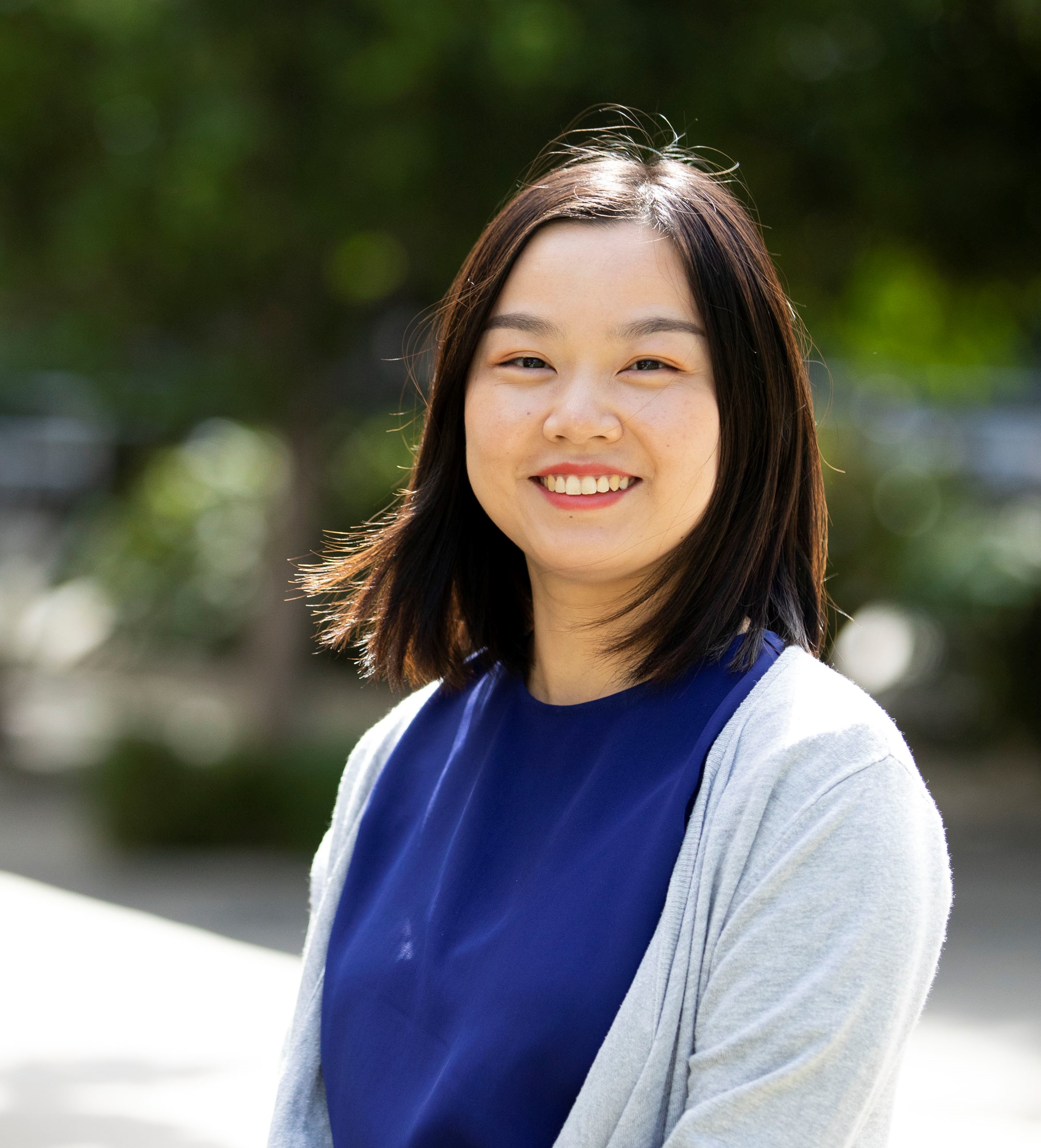
Keywords
Biography
Dr Ying Zhu is a Senior Lecturer at the School of Biomedical Engineering, University of Technology Sydney (UTS), and the group leader of the Laboratory of In-Vitro NanoDiagnostics. She completed her PhD in optical biosensors from 2011 to 2015 under the supervision of Professor Justin Gooding, Editor-in-Chief of ACS Sensors, in Australia's leading biosensor and biodevice research group at UNSW. Her postdoctoral work (2015–2017) at Dartmouth...view more
Dr Ying Zhu is a Senior Lecturer at the School of Biomedical Engineering, University of Technology Sydney (UTS), and the group leader of the Laboratory of In-Vitro NanoDiagnostics. She completed her PhD in optical biosensors from 2011 to 2015 under the supervision of Professor Justin Gooding, Editor-in-Chief of ACS Sensors, in Australia's leading biosensor and biodevice research group at UNSW. Her postdoctoral work (2015–2017) at Dartmouth College's Thayer School of Engineering expanded her expertise in translational cancer research, emphasizing the clinical applications of biosensors.
From 2017 to 2020, Dr Zhu was supported by the prestigious Cancer Institute NSW Early Career Fellowship, focusing on developing nanoplasmonic biosensors for cancer diagnostics. She joined UTS as a Lecturer in 2020 and was promoted to Senior Lecturer in 2023. In recognition of her research excellence, Dr Zhu was awarded an ARC Discovery Early Career Researcher Award (DECRA) in 2024.
My Grants
Dr Zhu has secured ~$2M in external funds. She was the lead CI in 90% of them. Below is the detailed list:
- Ying Zhu, Single extracellular vesicle analysis to identify high-risk pancreatic cancer precursor lesions, Pankind Early Detection Grants, A$99,986, 2024
- Ying Zhu, Optical Metasurface for Single Small Extracellular Vesicle Analysis, ARC DECRA 2024, A$450,000, 2023
- Ying Zhu, Phoebe Phillips, Nham Tran, George Sharbeen, A blood test for early detection of pancreatic cancer by single extracellular vesicle analysis, Pankind Innovation Grants, A$99,697, 2022
- Ying Zhu, Yong Li, Phoebe Phillips, Peter J. Reece, Multiparameter analysis of exosomes for non-invasive early detection of pancreatic cancer using a point-of-care nanoplasmonic sensor, Pankind Innovation Grants, A$96,033, 2020
- Yong Li, Ying Zhu, Peter J. Reece, Chee Khoon Lee, Raymond Wong, Combining nanoplasmonic profiling with machine learning for non-invasive early detection of ovarian cancer using plasma exosomes, Ovarian Cancer Research Foundation, A$134,026, 2020
- Ying Zhu, Rapid isolation and analysis of circulating exosomes using label-free nanoplasmonic sensors for non-invasive breast cancer diagnostics, Cancer Institute NSW Early Career Fellowship, A$572,268, 2017-2020
My Qualifications
- PhD, Chemistry, The University of New South Wales (UNSW), Australia (01/2015)
- Bachelor’s degree, Materials Science and Engineering, Huazhong University of Science and Technology, China (06/2009)
My Awards
- Young Investigator Award, 2018, Lion Club of Kogarah Inc.
- 1st Price, Basic Science, Medical Research Symposium 2018, St George & Sutherland Hospital
- Rising Star Award, 2018, Australian Association of Chinese Biomedical Scientists
- Cancer Institute NSW Early Career Fellowship, 2017-2020
- Chinese Government Award for Outstanding Students Abroad, 2014
- UNSW Tuition Fee Scholarship, 2011-2014
My Research Activities
Dr Zhu is the group leader of the Laboratory of In-Vitro NanoDiagnostics. She is rapidly gaining international recognition as an emerging leader in her field, reflected by her publication record in prestigious journals. Of her 31 publications, 82.6% appear in journals ranked within the top 10% and 88% in Q1 journals. Her work has garnered 1078 citations and achieved an H-index of 19 (as of April 2025), including a publication recognized as a top 1% highly cited paper in Clinical Medicine. Dr Zhu has successfully secured $1.89 million in research funding, serving as the lead Chief Investigator on 90% of externally funded projects, including the DECRA and Cancer Institute NSW fellowships.
Dr Zhu's current research aims to advance diagnostic technologies by translating frontier nanoscale tools.
Her interdisciplinary approach spans chemistry, physics, materials science, nanotechnology, and biomedicine. She is committed to translational biomedical research, advancing innovative analytical technologies through highly collaborative, cross-disciplinary efforts to bridge the gap from bench to bedside.
My Research Supervision
Areas of supervision
Biosensor and biodevice; surface chemistry and characterization; nanomaterials and nanotechnology; tissue culture; microscopy; immunoassays